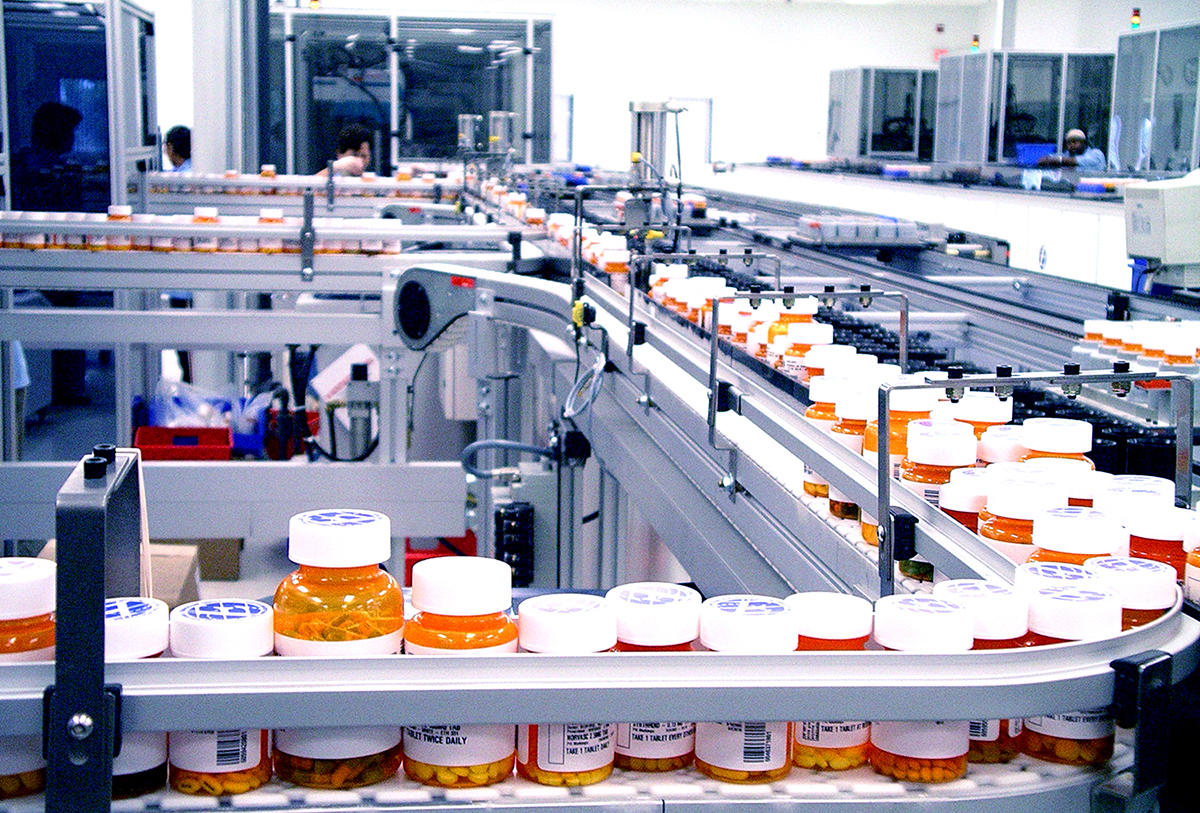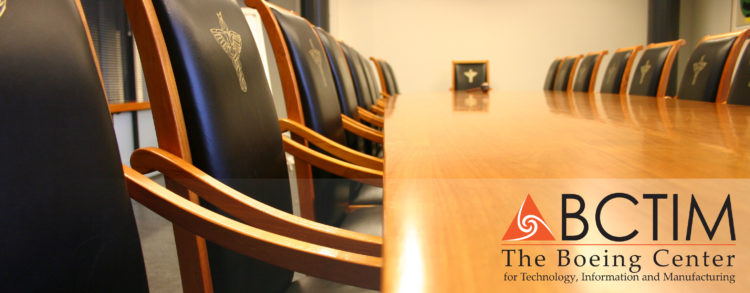Twenty years ago, through the exceptional generosity of the McDonnell Douglas Foundation, The Boeing Center for Technology, Information, and Manufacturing was endowed in the Olin Business School. Since then, we have served as a powerful catalyst for technology-driven innovation, process optimization, risk management, and global supply chain excellence.
In honor of our 20th anniversary, and to more accurately reflect our focus, we adopted a new look and changed our name to The Boeing Center for Supply Chain Innovation. And with a renewed vigor, we completed the most successful year in our history. Not only did we work on a record number of corporate projects, but we also hosted several events featuring exceptional speakers and supported research on a number of cutting-edge topics.
This spring, we welcomed Mike Pinedo, the Julius Schlesinger Professor of Operations Management at New York University, to talk about operational risk management in the service industry at our 13th annual Meir Rosenblatt memorial lecture. And we welcomed John Stroup, President and CEO of Belden Inc., to share his perspectives on Industry 4.0 and the emerging technologies that will impact the manufacturing industry and beyond. Both presentations were intellectually stimulating and thought provoking.
We also held our inaugural project competition and awards ceremony, the Project of the Year Symposium, which highlighted our top five corporate projects from the 2016-2017 academic year. The Symposium featured presentations from our student teams that worked on projects for Anheuser-Busch InBev, Belden, Boeing, Emerson, and Monsanto. The teams competed for awards in “Project of the Year,” “Greatest Immediate Business Impact,” and “Presentation Excellence,” and split a $10,500 prize pool. A summary of all our spring projects can be found below.
Our 3rd annual Supply Chain Finance & Risk Management Conference took place on May 14-15. The aim of the conference, which was attended by prominent academic researchers from top business schools from around the world, was to stimulate interactions and knowledge sharing at the interface of operations and finance, and supply chain risk management. The conference featured presentations based on current research trends, including real operations and risk management, crowd funding, finance, trade credit, and hedging. There was also a panel discussion on emerging themes and directions of the field. One of the initiatives resulting from the conference will be an edited book, comprised of short papers submitted by attendees, to be published this fall as an issue in the Foundations and Trends in Technology, Information and Operations Management book series.
We would also like to share with you some of the corporate projects The Boeing Center and student teams have led for our corporate clients this year.
Lastly, we would like to thank all of our corporate member companies for providing us with the opportunity to offer valuable experiential learning to our students, who dedicated long hours to ensure delivery of insightful and impactful supply chain solutions. We hope you all had an awesome summer, and we look forward to working with you again soon!

Learn more about sponsored projects and membership through The Boeing Center.
Anheuser-Busch InBev

This project revolved around optimizing the inventory mix at distribution centers for some of ABI’s craft beer products, particularly Stella Artois. The team utilized mathematical models with the potential to reduce accessorial costs and increase product freshness. Student team: Miles Bolinger, Sam Huo, Huyen Nguyen, Roberto Ortiz, and Jon Slack.
Belden

The team working on this project used the QR inventory modeling approach to identify opportunities and costs for improving service levels at PPC, a Belden subsidiary in Syracuse, NY. Student team: Bonnie Bao, Michael Stein, Yuying Wang, and Yuyao Zhu.
Boeing

The goal of this project was to determine the most influential order and part characteristics affecting on-time delivery statistics of Boeing’s transactional spare parts business. Student team: Vineet Chauhan, Phil Goetz, Brian Liu, Sontaya Sherrell, and Fan Zhang.
Edward Jones

The team’s objective was to analyze the technology deployment process at Edward Jones. They did this by conducting interviews and collecting survey data to run a capacity analysis and generate a personnel network diagram. Student team: Huang Deng, Wyatt Gutierrez, Cynthia Huang, Drew Ruchte, and Jamie Yue.
Emerson

The Emerson project team worked with ProTeam’s Richmond Hill facility to determine the optimal product mix, optimize inventory management of stock, and develop a data analysis model to facilitate future upkeep of the system. Student team: Kushal Chawla, Serena Chen, Kai Ji, Jeffrey Lantz, and Zoe Zhao.
Express Scripts
The purpose of this project was to optimize Express Scripts’ distribution network by considering logistics costs, formulary configuration, and inventory vs. service levels. Student team: Himanshu Aggarwal, Jinsoo Chang, and Janet Qian.
MilliporeSigma

In this project, the team worked with MilliporeSigma’s facility in Temecula, CA to develop a model to help determine the economic production quantity for each SKU based on customer demand, production cost, inventory value, and shelf life. Student team: Perri Goldberg, Youngho Kim, Ayshwarya Rangarajan, Prateek Sureka, and Flora Teng.
Monsanto

The objective of this project was to understand, define, and map out the credit processes within Monsanto. Student team: Hai Cao, Yanyan Li, Ashwin Kumar, Jonathan Neff, Tom Siepman, and Xukun Zan.
West Pharmaceutical Services

This project sought to accurately compute the approximate safety stock levels, reorder points, and replenishment quantities at West Pharma’s Kinston plant using a continuous review model. Student team: Matthew Drory, Rohan Kamalia, Mrigank Kanoi, Ray Tang, and Jiani Zhai.
For more supply chain digital content and cutting-edge research, check us out on the socials [@theboeingcenter] and our website [olin.wustl.edu/bcsci]
• • •
A Boeing Center digital production
Supply Chain // Operational Excellence // Risk Management
Website • LinkedIn • Subscribe • Facebook • Instagram • Twitter • YouTube



















